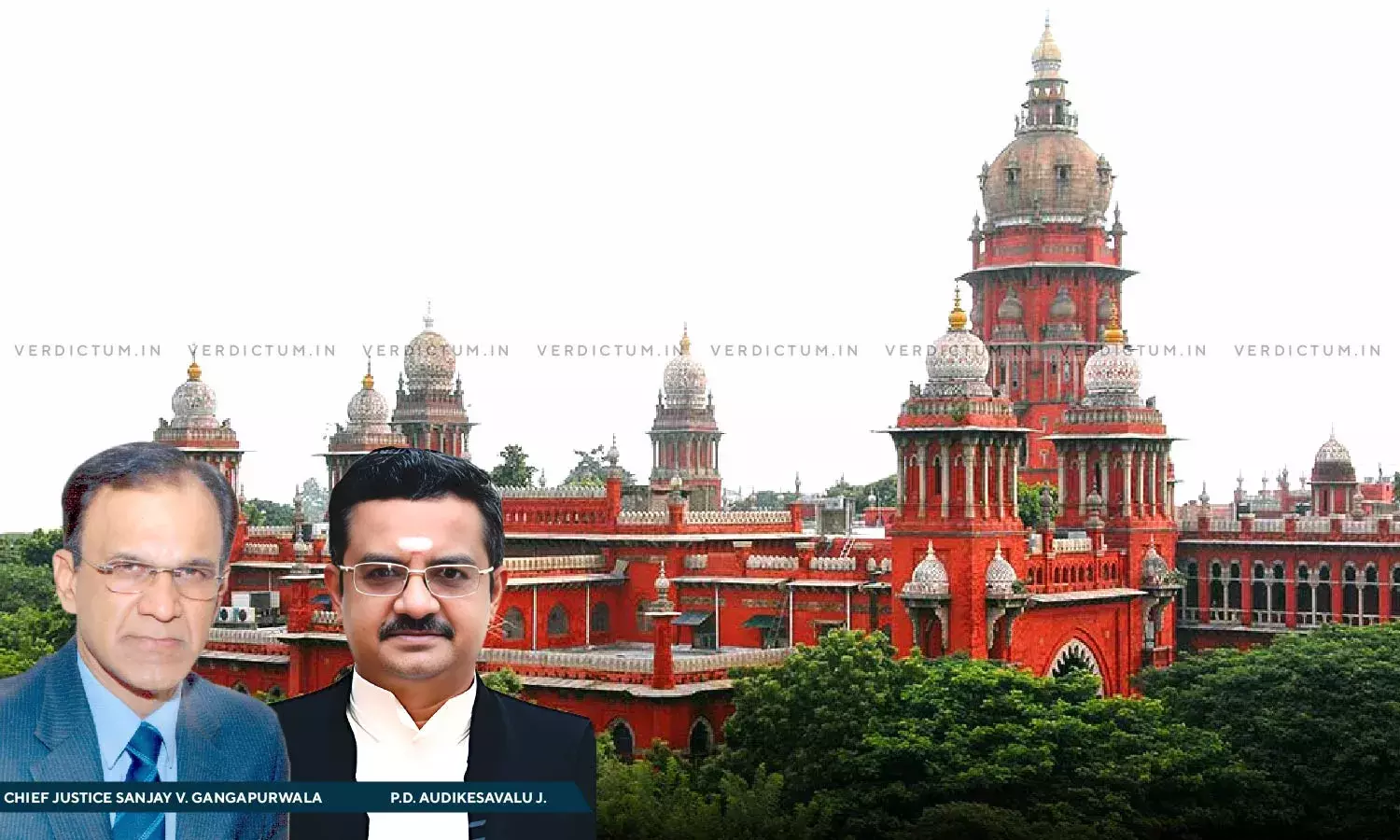Concept Of Communal Reservation Not Applicable To Religious, Linguistic Minority Educational Institutions: Madras High Court

The Madras High Court ruled that state governments cannot compel educational institutions operated by religious and linguistic minorities to implement social reservations and reserve seats for candidates from Scheduled Castes/Scheduled Tribes (SC/STs) and Other Backward Classes (OBC) categories. The appellant/petitioner, claiming to be a Minority Institution, filed a writ petition challenging the government order that rejected the extension of Religious Minority status to their college. The petitioner sought a permanent Religious Minority status certificate. The petitioner also breached the condition of admitting a maximum of 50 percent students from the Minority community, leading to the filing of writ appeal against the initial order.
A Division Bench of Chief Justice Sanjay V. Gangapurwala and Justice P.D. Audikesavalu, held that even if minority educational institutions receive aid from state governments, they are not obligated by constitutional provisions to practice social reservation. The Court cited Article 15(5) of the Indian Constitution, which exempts minority educational institutions from communal and social reservation.
The appellant/petitioner Justice Basheer Ahmed Sayeed College for Women is an Arts & Science College for Women affiliated with the University of Madras. They claim to be a Society established and administered by members of the Muslim Minority Community. The college was granted Minority status for the Academic Year 2006-07, which was later extended.
Senior Advocate Vijay Narayan appeared for the Appellants and Advocate R. Shunmugasundaram appeared for the Respondents.
The appellant argued that the 50% cap on Minority Community admissions was unconstitutional due to Article 15(5) and the TN Reservation Act, while also challenging the guidelines in government order as void. They contended that permanent Minority status cannot be time-bound.
The Advocate General countered, stating that aided Minority Institutions are not exempt from regulations. Regulation ensures equality and prevents reverse discrimination. The State has the authority to enforce a 50% cap, and the appellant had the option to appeal to the National Commission for Minority Educational Institutions Act. The choice of institution does not allow exclusive Minority admissions, and the 50% cap ensures fairness.
The issues before the Court were:
(i) whether the Minority Status can be granted only for a limited period;
(ii) whether Social Reservation has to be maintained by the Institutions administered and managed by Linguistic Minorities;
(iii) whether the State Government could impose threshold cap of not admitting students from the concerned Minority Community beyond 50 percent.
The Court referred to previous Supreme Court rulings in cases like Pramati Educational and Cultural Trust vs UoI and Ashok Kumar Thakur vs Union of India, where the top court had stated that the Right to Education Act does not apply to minority institutions, and Article 15(5) does not violate Article 14 of the Constitution since minority educational institutions constitute a separate class.
The Court clarified that the state can impose a 50 percent threshold as long as the college is not prevented from admitting Muslim minority students based on merit in the remaining 50 percent reserved for the general quota. Nevertheless, the state cannot revoke the college's minority status based on this ground.
The Court emphasized that the National Commission for Minority Educational Institutes Act, 2004, does not permit the grant of minority status for a temporary or restricted period. The minority status remains in effect until canceled by the Commission established under the Act. Admitting more students than the sanctioned 50 percent threshold does not automatically permit the cancellation of the institution's minority status.
The Court said, “In the light of the above, we have no hesitation to hold that the concept of Communal reservation or reservation for Scheduled Castes, Scheduled Tribes and other Backward Classes of citizens would not apply to Minority Institutions.”
The Court partly allowed the appeal summarizing that:
“i. The Minority status is not a tenure status, ergo is not for a limited period;
ii. The Competent Authority may adopt regulatory measures and supervisory measures, such as periodical calling for the list of Members of the Governing Board of the College and the Memorandum and Bylaws, so as to monitor that the Institution is manned by the Members of the Minority;
iii. The social reservation need not be maintained by the Educational Institution, administered and managed by the Minorities; and
iv. The State Government would be within its Right to impose the threshold cap of admitting students from the Minority Community to 50%. However, in the remaining 50% seats, filled on merit from the General Category, the students of the Minority Community can also compete and be admitted on merit and the same would not be counted in the 50% threshold cap meant for the Minority students.”
Cause Title: The Justice Basheer Ahmed Sayeed College for Women (Autonomous) v. The State of Tamil Nadu & Ors.
Click here to read/download Judgment


